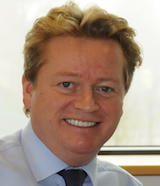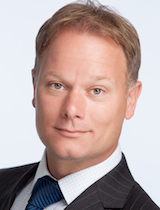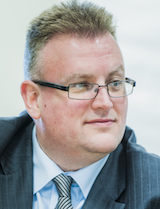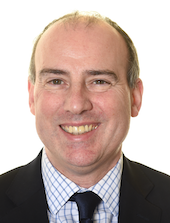 Overturning traditional perceptions can be a long-term challenge, but according to Nimans' Group Sales and Business Development Manager, Richard Carter, the distributor is fast becoming known as a full-blown solution provider rather than 'just a voice distie' with 30 years of impeccable operation under its belt.
Overturning traditional perceptions can be a long-term challenge, but according to Nimans' Group Sales and Business Development Manager, Richard Carter, the distributor is fast becoming known as a full-blown solution provider rather than 'just a voice distie' with 30 years of impeccable operation under its belt.
Nimans' well earned status as a bastion of traditional distribution spearheaded by Julian Niman cannot be contradicted. Just as certain, however, is its evolving role as a distribution hub for a spectrum of new and emerging technologies - all relevant to today's forward-looking ICT resellers. And a flick through Nimans' latest trade catalogue reveals a story of change and innovation, claims Carter. "Not that long ago technologies such as hosted telephony, WLAN, data connectivity and wholesale mobile would have been a foreign language, but today they represent a sizeable and growing chunk of Nimans' operations," he said.
"Our evolution is based on helping customers grow. That's never changed. We've always been a trusted supply source and now recognise how recurring revenues and leasing offer new ways for resellers to build greater value into their businesses, in addition to upfront sales. Choice is key."
Traditional technology such as systems, headsets and telephony remain popular, but it's not just about shipping boxes from Nimans' state-of-the-art warehouse. "We offer much more and are no longer a long standing voice distie," commented Carter. "The message is getting out there, but there are still some resellers who think they know us but in truth they don't. It's up to us to show them why Nimans is now a complete solutions-led specialist."
To help convey this message Nimans is changing the strapline on its logo, negotiating updated supplier contracts, launching a new company overview brochure and renaming its Systems Sales team to Solutions Sales. These, says Carter, are fundamental changes to the business made from the ground up.
In terms of growth areas, Carter points to WLAN and hosted as particularly stong. "Hosted is growing dramatically and the huge number of end points we are shipping reflects this as well as general levels of demand," commented Carter. "WLAN is one of the fastest growing areas in the UK comms industry, set to expand 20 per cent year-on-year. The £250 million UK sector is growing much quicker than the PBX market, and Nimans is at the forefront of the latest trends offering wireless connectivity solutions from Samsung and Engenius."
According to Carter, high quality WLAN is an essential business component that represents a 'massive opportunity' for telecoms and ICT resellers. "Today's technology combines simple installation with long range wireless performance across a host of environments," he added.
In the hosted telephony space, GS-hosted is Nimans' own hosted voice platform that offers resellers three ways to make money - upfront, recurring or a combination of both. The fast growing service includes a three year licence with every handset purchased and offers a choice of both capex and opex revenue models. Resellers can source the service for as little as £2 per seat, noted Carter.
Another important growth area for Nimans is data connectivity, which, says Carter, is flourishing. "Our Network Services division helps resellers maximise revenue opportunities in today's data hungry world," said Carter. "Ninety per cent of all data was generated in the last three years and we offer a wide choice of high capacity and flexible connectivity solutions such as broadband and FTTC, DIA, EtherStream, EFM, LAN Extension and MPLS/VPLS-based Wide Area Networks."
Just as important in Nimans' connectivity portfolio is mobile data. "We work with leading network carriers to offer resellers lots of mobile tariffs and associated services such as bureau billing," explained Carter. "Resellers maintain full customer ownership and benefit from a choice of single or multiple user inclusive tariffs and bundles, or bespoke pay-as-you-use options. We are also enabling resellers to exploit new areas such as the IoT and M2M, where vital data can be automatically transmitted direct, such as from vending machines and water meters."
A prominent feature in the recent changes at Nimans is the appointment of Marcus Yates who now spearheads Unify systems sales. His appointment follows a four year stint at the distributor, previously heading-up the NEC division which is now being run by Yvonne Tierney-Neave who also boasts an extensive comms career. "This reshuffle is in addition to our Systems Sales team being renamed Solutions Sales," explained Carter.
"We are much more than a traditional distributor. A new corporate video is being developed to emphasise the changes within our business and how resellers can capture new revenue streams and continue to grow and develop. Across the Group the number of engineers has doubled. And we have all the components in place to maintain our levels of service and support."
Carter believes that for the most part resellers do not still see Nimans as a traditional voice distributor. "They are getting the message," he commented. "Nimans is very much a voice and data service and solutions specialist as well as a channel comms distributor. For example, we are revisiting all of our supplier agreements because what we currently have is essentially equipment distribution contracts, but the industry is moving more towards software and services. We are combining the old with the new, and it's an exciting journey."

 Philip Carse, Analyst at Megabuyte.com, reports on the recent performance of leading companies in the comms space during the last quarter.
Philip Carse, Analyst at Megabuyte.com, reports on the recent performance of leading companies in the comms space during the last quarter. The rise of shadow IT could suggest that many CIOs are not able to deliver the innovation required by their organisations, presenting significant challenges in the development of coordinated IT strategies in the enterprise. How can resellers help them, and what challenges will resellers face in building customer relationships and achieving a successful outcome?
The rise of shadow IT could suggest that many CIOs are not able to deliver the innovation required by their organisations, presenting significant challenges in the development of coordinated IT strategies in the enterprise. How can resellers help them, and what challenges will resellers face in building customer relationships and achieving a successful outcome? US-based RingCentral has a strong and growing influence in the UK and in March this year partnered with BT to launch BT Cloud Phone. Here, Curtis Peterson, SVP Operations, discusses the company's fast evolving expansion strategy.
US-based RingCentral has a strong and growing influence in the UK and in March this year partnered with BT to launch BT Cloud Phone. Here, Curtis Peterson, SVP Operations, discusses the company's fast evolving expansion strategy. Agilitas CEO Shaun Lynn aims to bring inventory to the masses having completed an MBO and appointed industry veteran Tom Kelly as Chairman.
Agilitas CEO Shaun Lynn aims to bring inventory to the masses having completed an MBO and appointed industry veteran Tom Kelly as Chairman. Lancs-based Abbey Telecom has recruited Andy Wilson (pictured) as Director with a remit to leverage sales opportunities in the north west region.
Lancs-based Abbey Telecom has recruited Andy Wilson (pictured) as Director with a remit to leverage sales opportunities in the north west region.